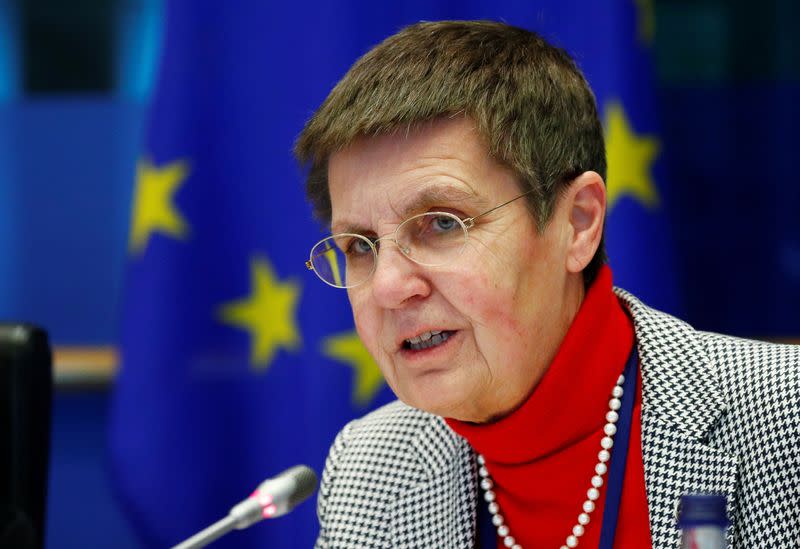Ukraine war's impact on EU banks 'manageable', says watchdog

By Huw Jones
LONDON (Reuters) - The impact of the Ukraine war on banks in the European Union is 'manageable' but the effects of commodity markets on lenders needs to be watched, the bloc's body for winding down failing banks said on Wednesday.
The war has created volatility in markets like commodities and raised the spectre of a slowdown in the economy.
"We are monitoring the entire banking space, looking at first round impact, which seems from all we are seeing manageable," Elke Koenig, chair of the Single Resolution Board, told a media conference.
The impact of commodity markets on banks is an area to be watched, however, Koenig said.
"I would not see anything currently that I find deeply troubling for the moment."
However, Koenig said she does expect the level of souring loans to pick up due to economic slowdown.
The SRB intervened in the European operations of Sberbank, Russia's biggest lender, which looked set to fail as due to a run on deposits after Russia's invasion of Ukraine.
A second Russian bank, VTB, continues to operate in Europe because, unlike with Sberbank, its largely Germany based depositors had not fled, Koenig said.
The SRB requires banks in the EU to issue a set amount of special debt that can be written down in a crisis to replenish depleted capital without the need for taxpayer bailouts.
There were no worries that banks won't meet a 2023 deadline for special debt issuance, SRB officials said, but banks need to continually be on guard as existing debt expires over time.
"You need to issue this on a constant basis," Koenig said.
In case of a special debt shortfall in a crisis, a backstop single resolution fund is being created with contributions from banks and will be in place soon, Koenig said.
(Reporting by Huw Jones, Editing by Louise Heavens)

 Yahoo Finance
Yahoo Finance 